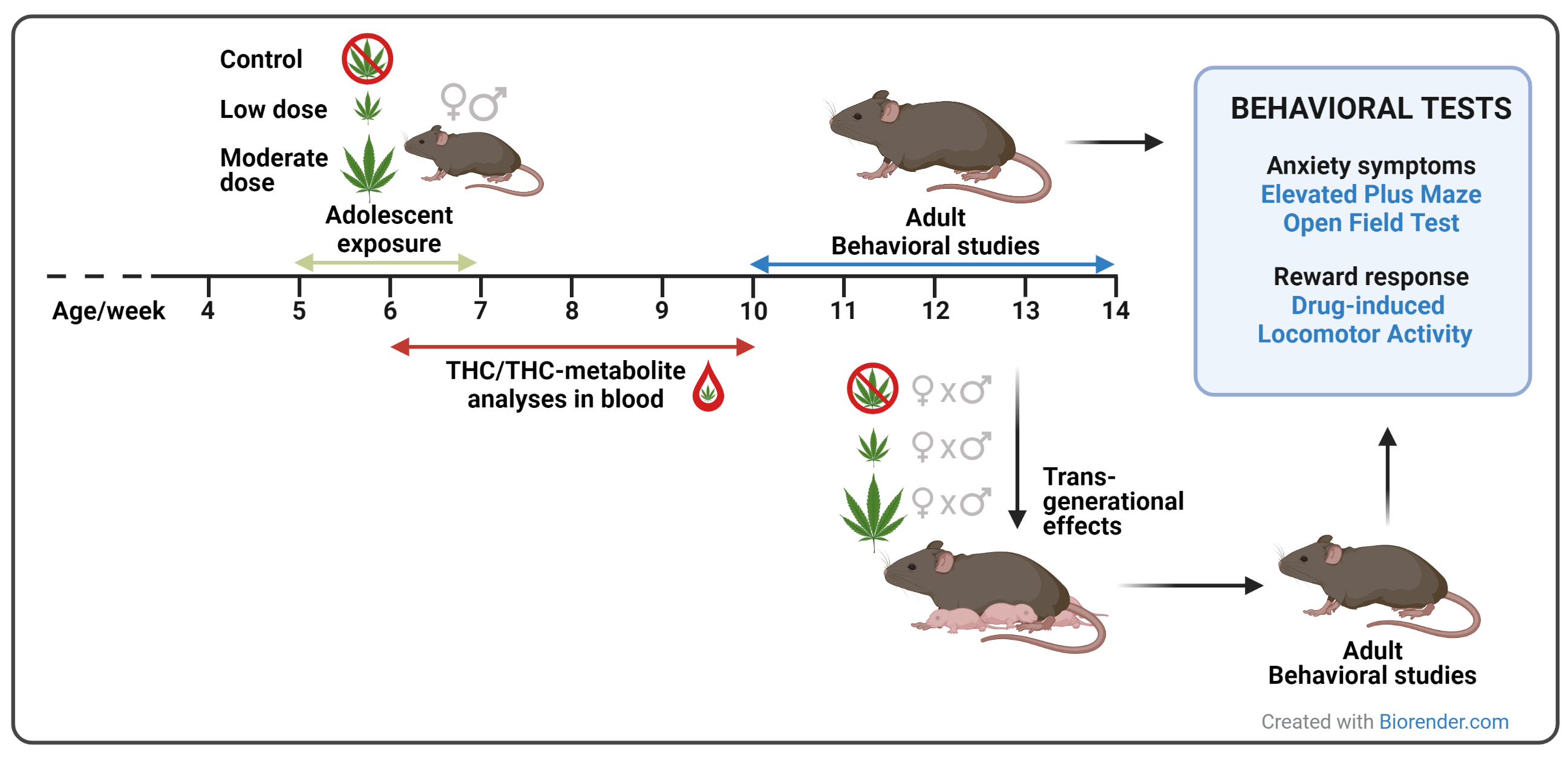Cannabis and the Developing Brain
Along with the international wave of cannabis legalization, we are facing a trend shift with escalating cannabis use among teenagers. This is of major concern considering the associations between early onset cannabis use and cognitive deficits and psychiatric disease in adulthood. The increased vulnerability to cannabis in the adolescent compared to the adult human brain is supported by animal studies, which have established a causal link between adolescent exposure to cannabinoids and long-term cognitive changes. As a precautionary principle, teenagers are advised to resist early-onset cannabis use; however, the neurobiological basis for the heightened vulnerability of the young brain to cannabinoids is still missing.
The primary aim of our research is to reveal new insight into the long-term effects of cannabis use during adolescence and to pinpoint the neurobiological differences that render adolescents more vulnerable to cannabis exposure compared to adults.
Research questions
- Does cannabis use during adolescence induce long-term effects such as anxiety disorders and persistent changes in the brain’s reward system in adults?
- Does cannabis use during adolescence have the same consequences in males and females?
- Does adolescent cannabis exposure induce transgenerational effects causing behavioral changes in future generations?
- What is the neurobiological basis for the increased susceptibility to negative long-term effects of cannabis in adolescents compared to adults?

Project 1
Adolescent mice are exposed to low and moderate doses of THC (tetrahydrocannabinol, the main active ingredient in cannabis) (0.5 and 5 mg/kg/day for 14 days) to examine whether cannabis use during adolescence induces increased anxiety symptoms in adults and/or persistent changes in the brain reward system. We expose both male and female mice to examine whether cannabis exposure during adolescence have sex-specific effects (manuscript in preparation).
Project 2
Adult mice exposed to low and moderate doses of THC (0.5 and 5 mg/kg/day for 14 days) during adolescence are mated to examine whether adolescent cannabis use induces transgenerational effects in non-exposed offspring. The THC exposure is terminated 3-4 weeks prior to mating and blood samples are taken to confirm that the animals are drug-free prior to mating. Behavioral studies are performed in both male and female offspring to examine whether potential transgenerational THC effects are sex-specific (manuscript in preparation).
Project 3
For this upcoming project we will examine the neurobiological changes after adolescent and adult THC exposure. The main aim is to explore the neurobiological basis for the increased susceptibility to negative long-term effects of cannabis in adolescents.
If you have questions about the project or suggestions for research collaboration, please contact: Inger Lise Bogen (inger.lise.bogen@ous-hf.no) at the Section for Drug Abuse Research, Department of Forensic Sciences, Oslo University Hospital, Oslo, Norway.
